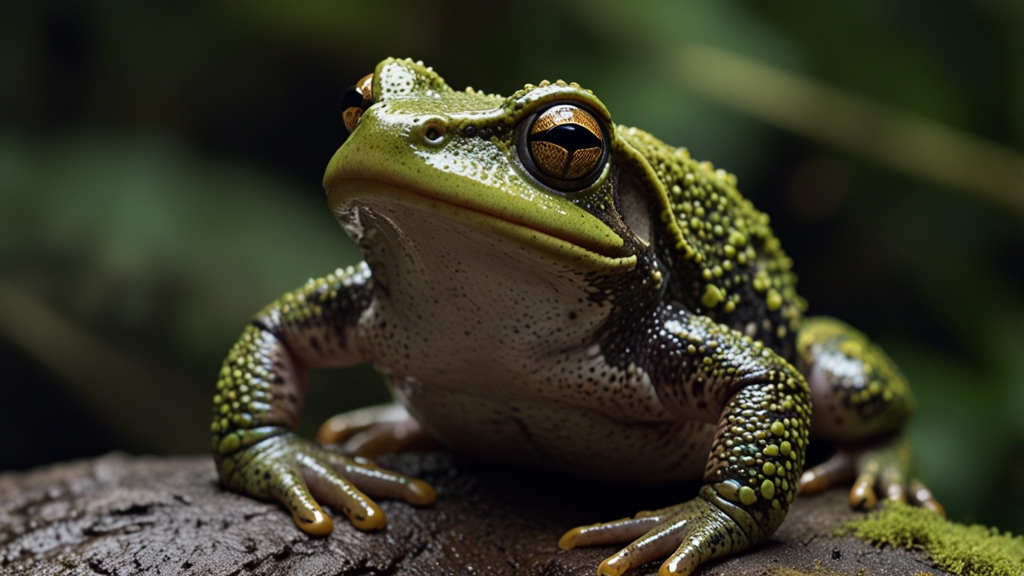Are Amphibians the Key to Our Planet's Survival?
Amphibians, a group of ectothermic vertebrates that include frogs, toads, salamanders, and caecilians, have been a part of Earth's ecosystem for over 370 million years. These incredible creatures have survived multiple mass extinctions, but today, they are facing unprecedented threats. Amidst these challenges, a compelling question arises: can amphibians be the key to our planet’s survival?
The Role of Amphibians in the Ecosystem
Amphibians play a pivotal role in various ecosystems. As both predator and prey, they are integral to maintaining ecological balance. Amphibians help control insect populations, which in turn aids in protecting crops and reducing the spread of diseases such as malaria and West Nile virus. Their permeable skin also makes them excellent bioindicators, signaling the health of their environment through their well-being.
Amphibians are often referred to as the 'canaries in the coal mine' for ecological health. because they are highly sensitive to environmental changes, their decline can indicate broader environmental issues."
Moreover, amphibians contribute significantly to nutrient cycling. Many amphibian larvae live in aquatic environments where they feed on algae and other microorganisms, converting these into biomass. As they metamorphose and migrate to terrestrial ecosystems, they transfer these nutrients, thus linking aquatic and terrestrial food webs.
Medical and Scientific Contributions
Amphibians also hold immense potential in the field of medicine. Various compounds derived from amphibian skin have shown promise in treating infections, combating antibiotic resistance, and even fighting cancer. Some species produce antimicrobial peptides that can serve as templates for new, life-saving drugs. Additionally, studying amphibian regeneration abilities could unlock secrets in tissue regeneration and repair for humans.
"The unique biological properties of amphibians offer a treasure trove of compounds that could lead to groundbreaking medical treatments," says Dr. Jane Wilson, a herpetologist at the National Institute of Health.
The preservation of amphibians could, therefore, have far-reaching implications, extending beyond ecosystems to human health and medicine.
Current Threats and Conservation Efforts
Despite their significance, amphibians are among the most threatened groups of animals on the planet. Habitat destruction, climate change, pollution, and the spread of infectious diseases like chytridiomycosis have caused drastic declines in amphibian populations worldwide. According to the International Union for Conservation of Nature (IUCN), nearly one-third of all amphibian species are threatened with extinction.
"The decline of amphibians is a global crisis that demands immediate and coordinated efforts," emphasizes Dr. Carlos Davidson, an ecologist specializing in amphibian conservation.
Conservation efforts are underway to address these threats. Strategies include habitat restoration, captive breeding and reintroduction programs, and legal protections. Public awareness and education campaigns are also crucial, helping to garner support for conservation initiatives and foster a sense of stewardship in local communities.
The Path Forward
Are amphibians the key to our planet’s survival? While it may be an overstatement to say that they alone hold the key, their role is undeniably crucial. The survival and prosperity of amphibians are intertwined with the health of the broader environment and human well-being. Protecting amphibian species and their habitats can yield a cascade of benefits, aiding biodiversity, ecosystem services, and scientific advancement.
As stewards of the planet, it is our responsibility to act swiftly and effectively to preserve these remarkable creatures. Through concerted conservation efforts and a commitment to sustaining healthy ecosystems, we can help ensure that amphibians continue to thrive, thus securing a healthier future for all life on Earth.









